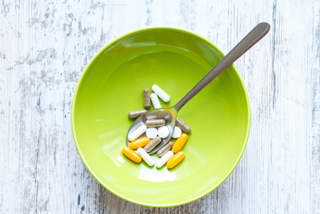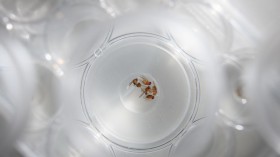Almost everyone across the world has experienced some degree of lifestyle change thanks to the new coronavirus - and for many, that change has inspired worry if not outright panic. What if you get sick and can no longer work? What if you get seriously sick and must be separated from your family? What if you die?
Thoughts like these are not uncommon, and unfortunately, they are causing people to act irrationally in a number of ways. Hoarding behaviors, ignoring authorities and guzzling fake treatments do little to make people any safer from the disease, and they can even have negative outcomes for individuals and communities. Fortunately, the vast majority of the population is making more responsible decisions for themselves and their loved ones.
Yet, there is one potential boon that has the public divided: immunity boosting supplements. Are these products doing anything to keep users healthier and safe? Read on to find out.
What Is Inside Immunity Boosters?
It should go without saying that no one should trust any product that makes claims about immunity without explaining how it can provide such immunity support. You need to look into what is inside immunity boosters to better understand whether or not they will help you stay healthy. Typically, supplements that claim to boost immunity will fall into one of two categories: vitamin formulations and probiotics.
Vitamins are integral to maintaining effective immunity because they are mandatory for overall health. The most common vitamin to find in immunity boosters is Vitamin C, which stimulates the creation of white blood cells that fight infection. Some B Vitamins are common in these supplements because they assist with fine-tuning the sensitivity of your immune system and producing healthy antibodies. You might also find Vitamin A, which has anti-inflammatory properties, and Vitamin E, which helps to combat age-related immune deficiencies. In addition to vitamins, you should find micronutrients like zinc and magnesium; though there is less research connecting these nutrients directly to immune support, they are essential for wellness.
Probiotics, the other category of immune boosters, are good bacteria that flourish in your digestive system, helping you break down food and absorb nutrients. While there is a lot of excitement around microbiomes and gut fauna, the truth is that researchers don't know much about how probiotics impact health in the short- and long-term. There are so many different kinds of microbes in your digestive system and so many different types of diseases, and it will take a decade or more for science to parse the information and make a practical judgement.
In both cases, for vitamin formulations and probiotics, supplements aren't doing much for your immune system when you are already ailing. Rather, you should be strengthening your health overall by taking vitamins, minerals and probiotics regularly. When you fall sick, you should take cold and flu remedies as opposed to immunity boosters - and as always, you should talk to your doctor and take whatever treatments or medications they prescribe. Still, immunity boosters containing the right vitamins and probiotics can reduce the likelihood or severity of illness, so taking supplements like these every day might be a good idea.
Which Immunity Boosters to Avoid?
There is a third group of immunity boosters we didn't mention before - and that's because they largely don't work. Immune boosters that contain no vitamins or probiotics but instead rely on homeopathic ingredients like herbs have little foundation in scientific fact. Most homeopathic immune boosters, like elderberry, ginger, garlic and echinacea, won't do much to improve your health; any effects they do have come from low doses of vitamins and minerals, which you can obtain from a more concentrated, vitamin-based supplement. Some homeopathic immune support, like Coldcalm, contains ingredients that could actually be harmful; both belladonna and pulsatilla are known to be highly toxic, especially when taken orally. In general, it is much smarter and safer to avoid these so-called natural, homeopathic treatments and opt for boosters that have research backing up their efficacy.
Are immunity boosters great, or are they fake? The answer is, frustratingly, "it depends." If you are taking the right type of immunity-boosting supplements daily to ensure your body has the vitamins and minerals to maintain health, you will likely find immunity boosters to be great. However, if you are investing only in homeopathic remedies, you could be missing critical nutrients your body needs to develop a strong immune response. In the case of immunity boosters - as is the case any time your health is at stake - you should do your research before you buy.
© 2024 NatureWorldNews.com All rights reserved. Do not reproduce without permission.






